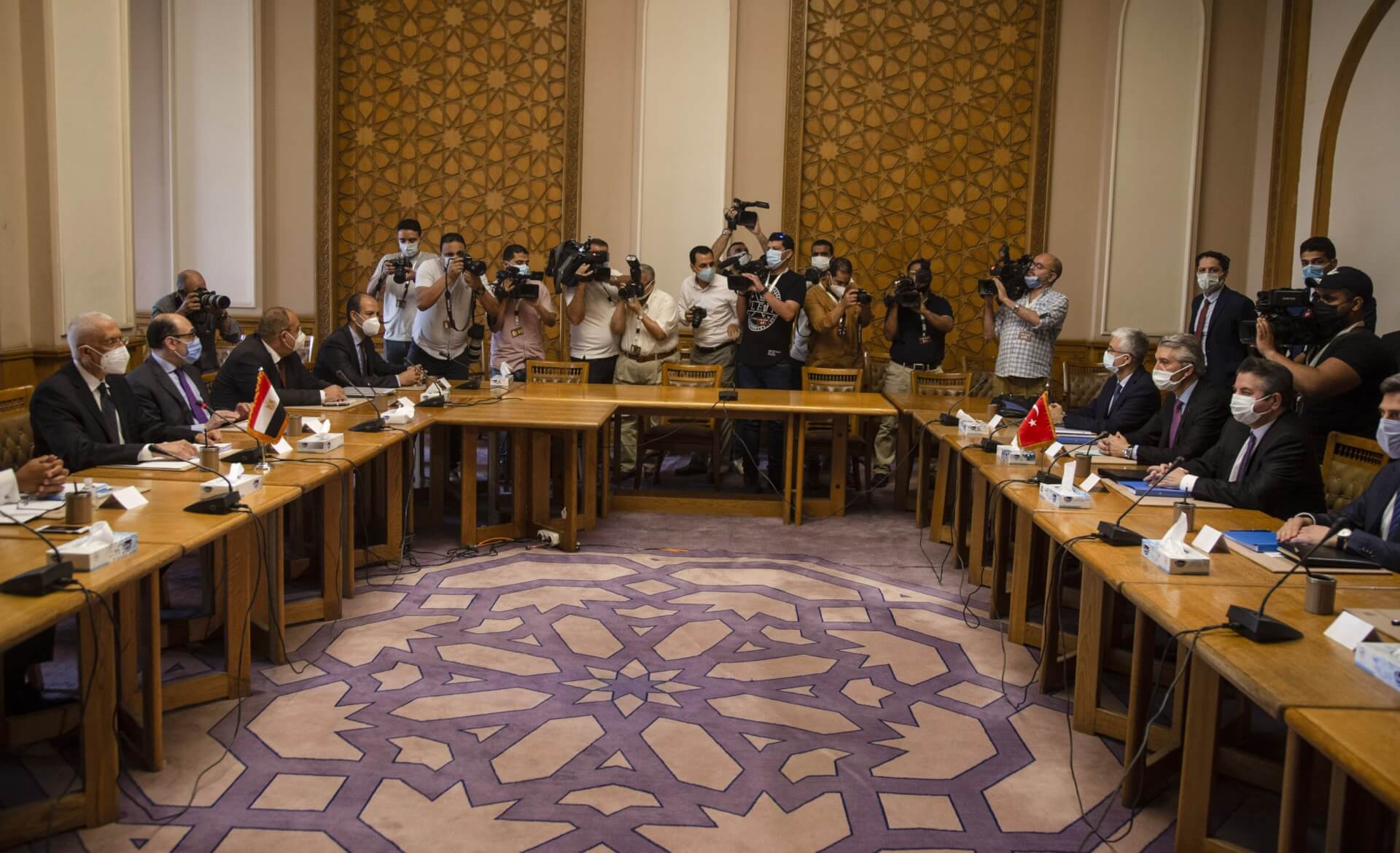On Thursday, Egyptian and Turkish delegations concluded talks aimed at normalising relations. The discussions, which began on Wednesday in Cairo, were the first high-level meeting between the two sides since 2013, when ties broke apart over the Egyptian military’s toppling of Erdoğan-backed and democratically elected President Mohammed Morsi.
A joint statement released after the talks said that “the discussions were frank and in-depth. They addressed bilateral issues as well as a number of regional issues, in particular the situation in Libya, Syria, Iraq, and the need to achieve peace and security in the Eastern Mediterranean region.” The text also added that “the two sides will evaluate the outcome of this round of consultations and agree on the next steps.”
Egypt and Turkey have been backing opposing factions in the Libyan civil war, which has strained bilateral relations. However, last month, Ankara said that better ties with Cairo could improve peace efforts in Libya. Turkish President Recep Tayyip Erdoğan’s spokesperson, Ibrahim Kalin, told Reuters that “rapprochement with Egypt [...] will certainly help the security situation in Libya because we fully understand that Egypt has a long border with Libya and that may sometimes pose a security threat for Egypt.”
While it has been reported that Cairo backs the Khalifa Haftar led rebel Libyan National Army (LNA) by supplying it with arms, Ankara has sent its soldiers and mercenaries to help Libya’s Government of National Accord (GNA) in its fight against Haftar’s forces. In this regard, the Turkish delegation agreed that while all foreign forces needed to leave Libya, it had an agreement with the Libyan government to station its troops in the country.
Another area of contention between the countries is regarding the role played by the Muslim Brotherhood in the region. During the talks, the Turkish delegates told their Egyptian counterparts that Ankara was not willing to deport certain Muslim Brotherhood members who are wanted in Egypt. Cairo’s current government led by President Abdel Fattah el-Sisi regards the Brotherhood as a terrorist organisation but Ankara sees it as a legitimate actor. In an interview with local media last month, Turkish Foreign Minister (FM) Mevlüt Çavuşoğlu said, “We were against the coup in Egypt, not because it was the Muslim Brotherhood. If Sisi was in office that day and somebody else had carried out a coup, we would [have] shown the same principled stance.” Çavuşoğlu also said that Turkey was opposed to Egypt’s declaration of the Brotherhood as a terrorist organisation. However, Ankara recently asked Egyptian opposition TV channels operating in Turkey to limit their criticism of Cairo, a move welcomed by Egypt.
Both sides also discussed existing tensions over the issue of maritime borders. In 2019, Turkey signed a maritime treaty with Libya, creating an Exclusive Economic Zone (EEZ) in the Mediterranean Sea which would extend from Libya to Turkey. This deal was contested by the governments of Greece and Egypt, which labelled the treaty as “illegal” because it violated the sovereignty of neighbouring countries. In response, Athens and Cairo signed a separate deal delineating their own maritime boundaries, which was rejected by Ankara. Against this backdrop, the willingness shown by both sides to discuss the complicated claims over the EEZs is a major step forward in mending ties.
Turkey is seeking to boost ties with its Arab neighbours, especially after ties with the United States (US) have taken a downturn. FM Çavuşoğlu is set to visit Saudi Arabia next week in a bid to repair relations that broke down after Saudi officials murdered journalist Jamal Khashoggi in Istanbul in 2018.
Egypt, Turkey Hold Talks Aimed At Normalising Ties
Both sides have been at odds over their conflicting positions on the Muslim Brotherhood, the Libyan war, and maritime borders.
May 7, 2021

SOURCE: EPA
